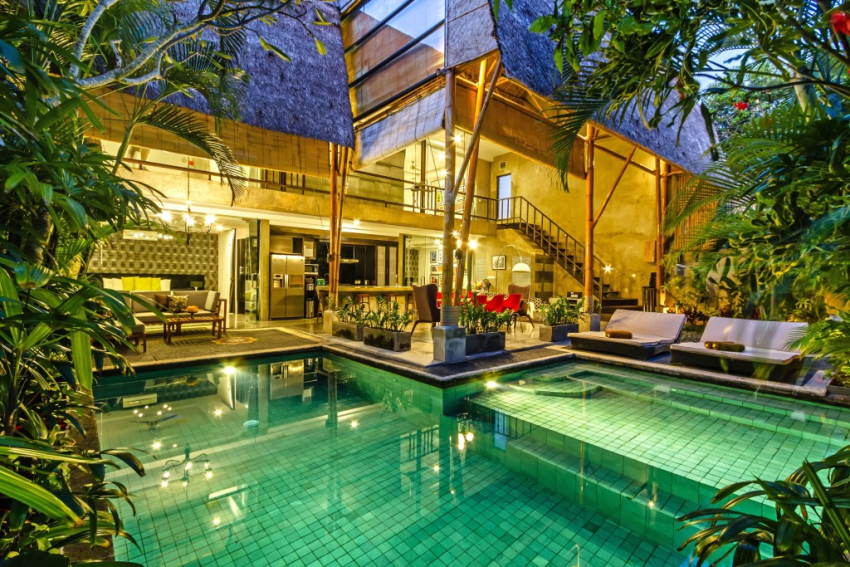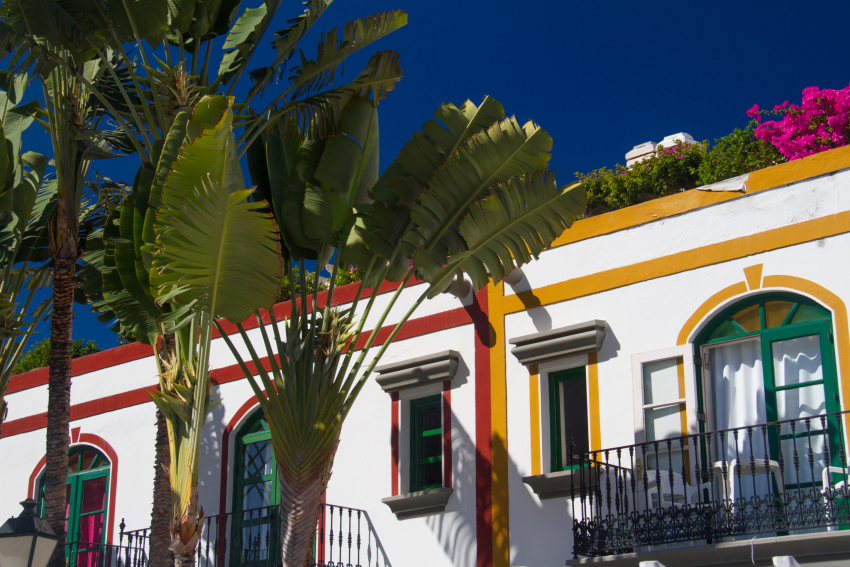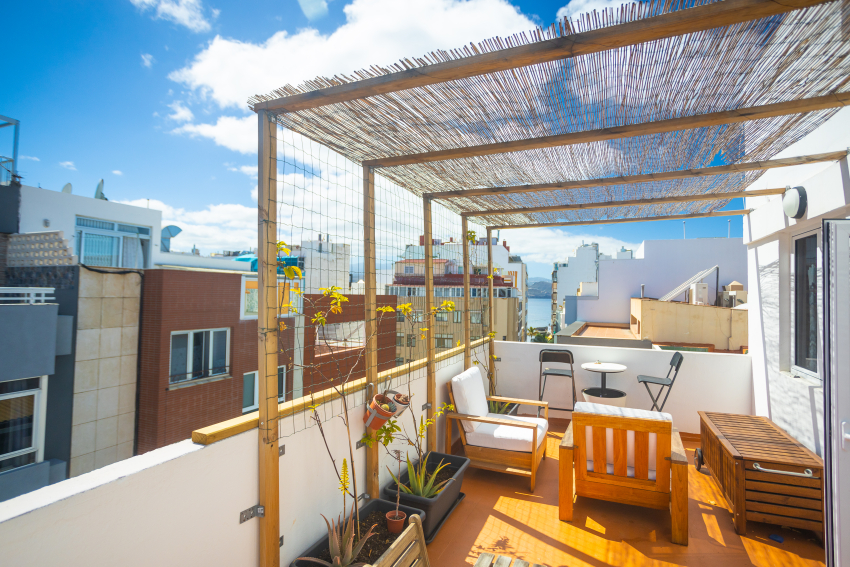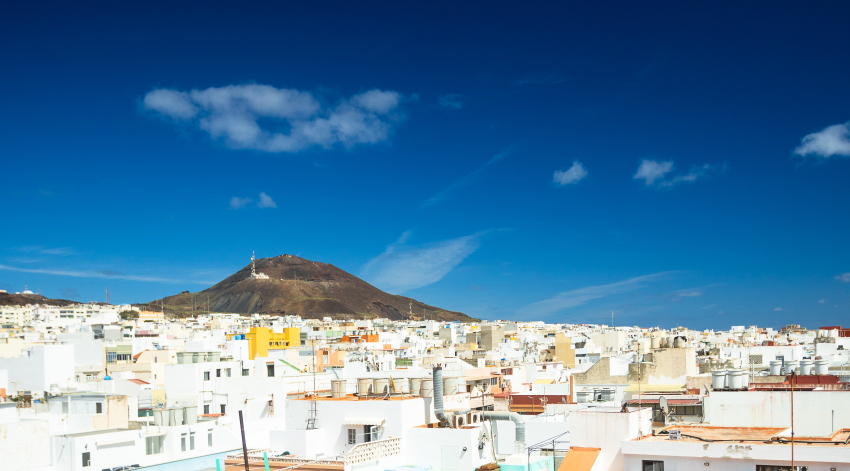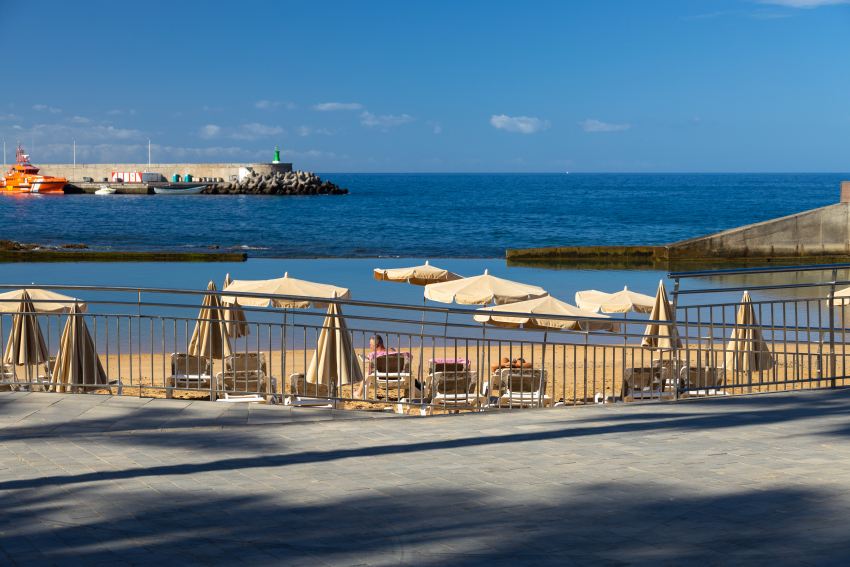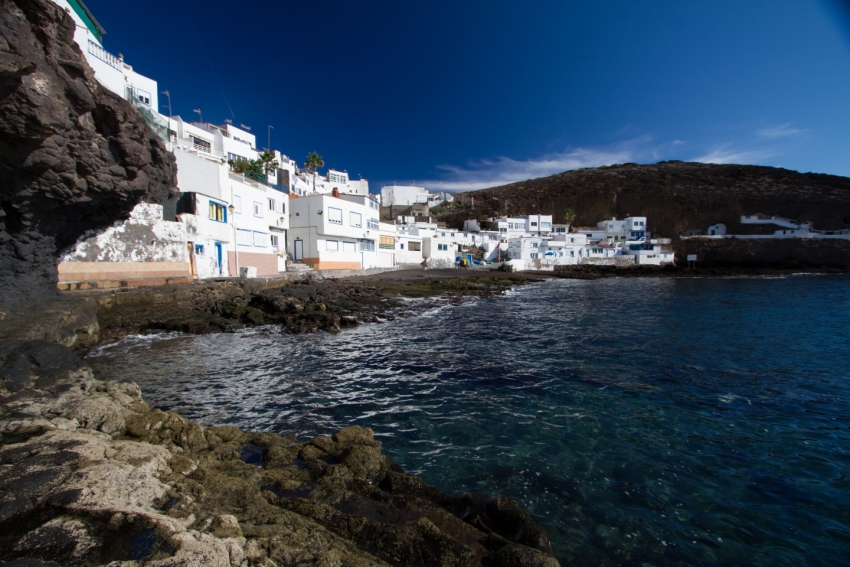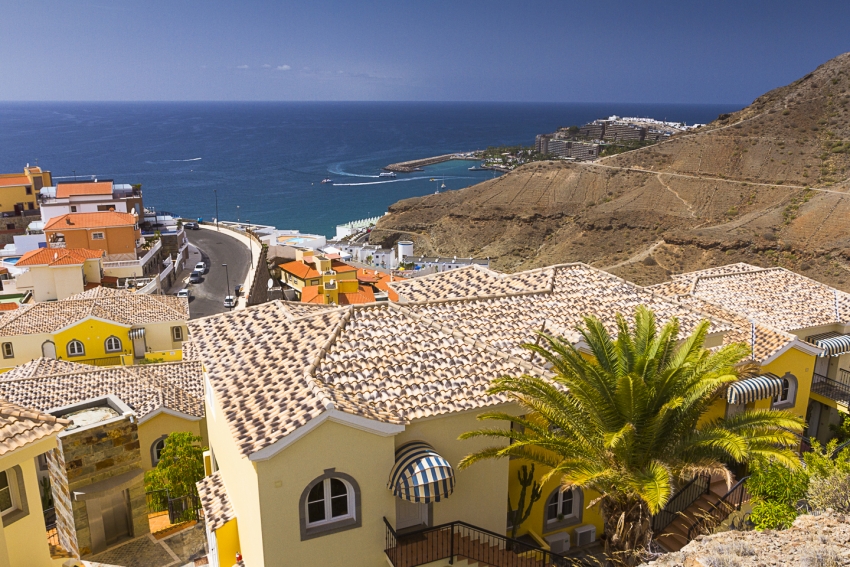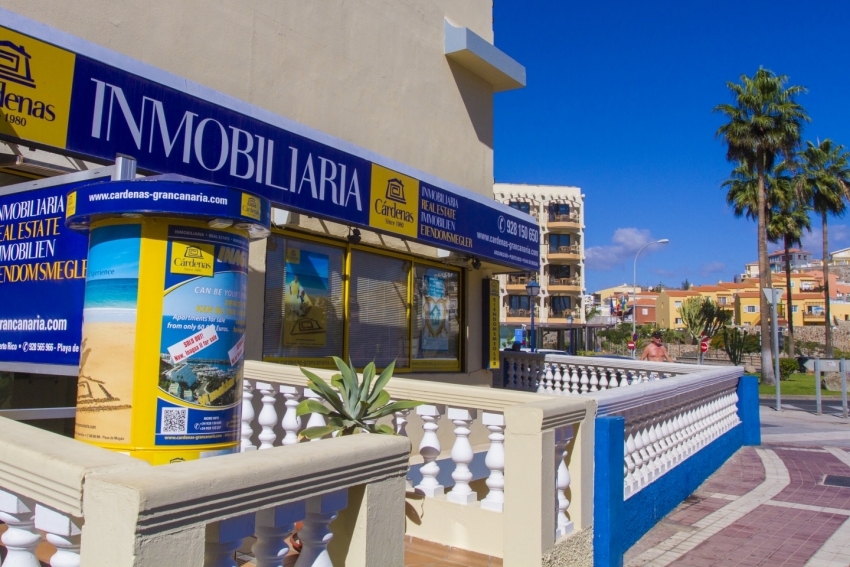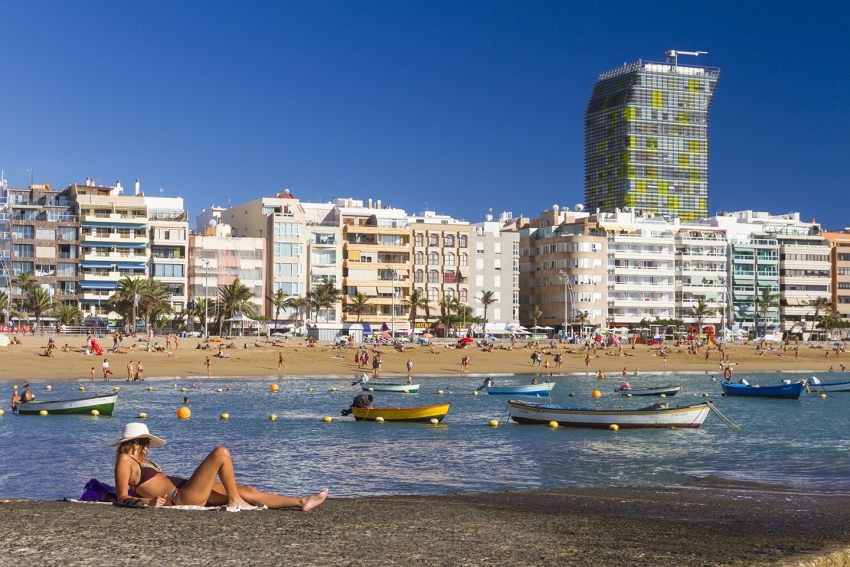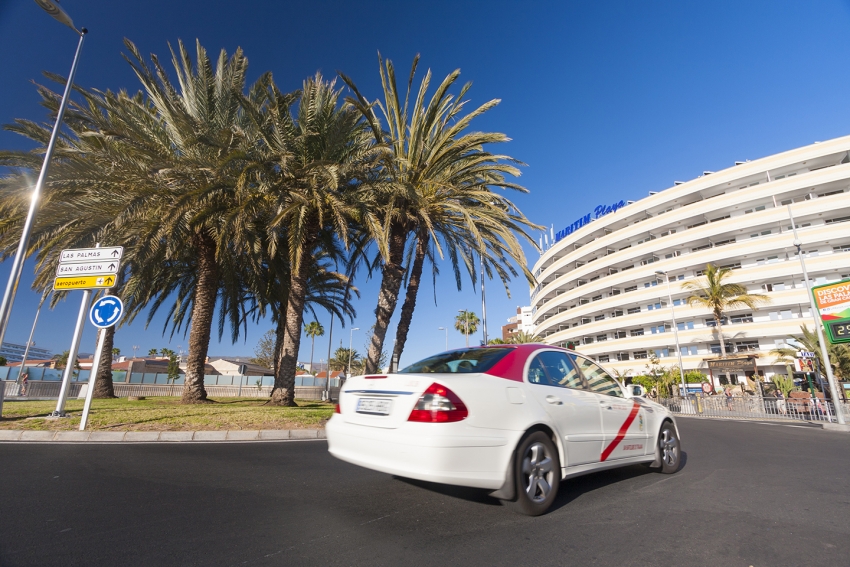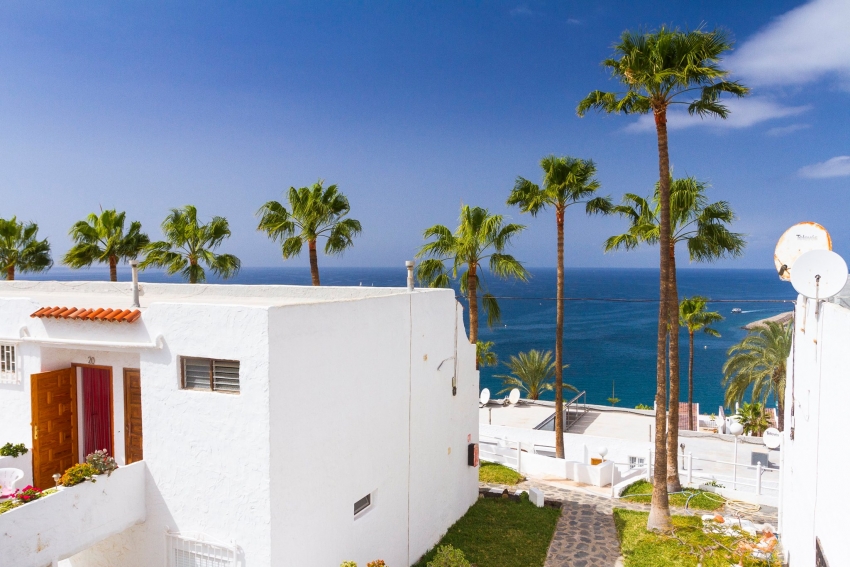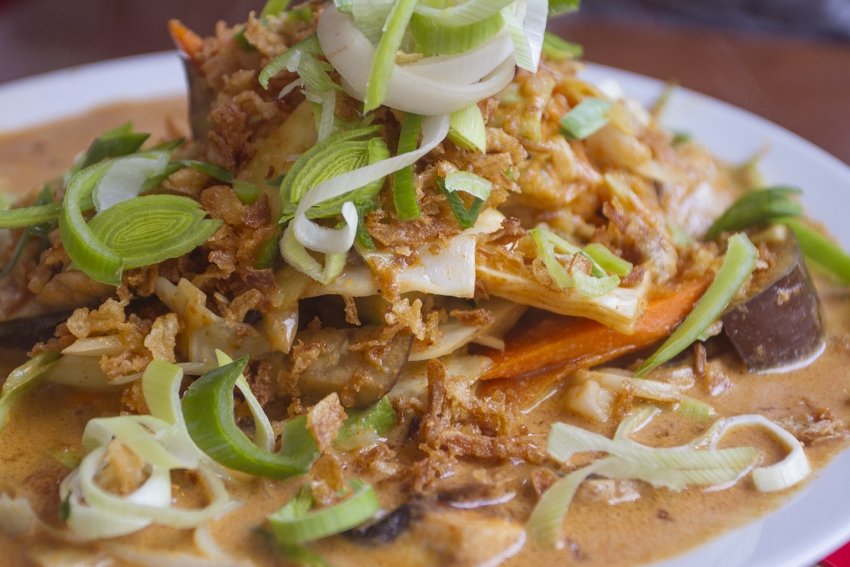Renting A Property In Gran Canaria? Read This To Avoid Scams
Rental scams are a growing problem all around the world and especially in places like Gran Canaria where there is always a shortage of properties.
Here’s our guide to the most common scams and how to spot them, plus some tips about how to find a safe rental in Gran Canaria.
You are most vulnerable to scammers if you are looking for property in Gran Canaria for a medium period of time; longer than a month but less than a year. There are less properties rented out like this and demand is high.
Short stays are safer because you book them on Airbnb or Booking.com and see the landlord’s reviews. Long-term rentals tend to be handled by estate agents, or at least come with a negotiated contract and are therefore less vulnerable to fraud. For residential rentals, and yto an idea of prices and standards,start at Idealista.com.
The fake property scam
This is common in the high end rental market because there is a big lack of property with outside space, especially in Las Palmas de Gran Canaria city.
Scammers create an advert on a popular rental portal, or post pictures in Facebook Groups aimed at remote workers and digital nomads.They then take a reservation deposit, take down the advert and disappear.
The key to spotting this scam is to pay close attention to the photos of the property. There should be plenty of them and they should all have the same furniture and fixtures. You can often tell that the outdoor photos from fake listings are not taken in Gran Canaria, or that the property is not typical of the island (Balinese villa, ultra-modern high rise, etc). There are no villas or houses with gardens near the beach in Las Palmas.
Never believe landlords who give you excuses about not having any photos because they are redecorating, etc.
You can also Google search the images to see if they appear in multiple adverts from different places, or appear on property portals (scammers get their photos from estate agent listings).
Multiple deposit scam
We’ve had several reports of this happening in Las Palmas recently and it is also well known in the resorts.
The owner of a genuine property takes several deposits from people who all believe they have reserved it. Then they arrive to find that the property is already occupied and the owner refuses to return the deposit.
To avoid this scam, always ask for a receipt when leaving a deposit and always pay by bank transfer rather than in cash. If at all possible, avoid leaving a deposit until you have seen a property.
The unpleasant flatmate
There is at least one guy in Las Palmas pulling this trick. He rents out a room, with a deposit and rent in advance, in his apartment. As soon as his guests move in he starts to act erratically so that they move out to get away from him and he keeps their money.
Avoid this scam by asking for the contact details of previous tenants.
How to avoid scammers
- Only pay a deposit after you have received a reservation receipt with the contact details and identity number of the landlord
- There is no such thing as a bargain rental property in popular areas of Gran Canaria; you get what you pay for and underpriced properties are cheap for a reason
- Make sure you have the exact address of the property and compare it to the photos using Google Maps
- Ask for the contact details of previous tenants
- Check all photos carefully for coherence and location
- Use landlords who have their properties listed on property portals such as Airbnb and Booking.com and have plenty of reviews
- Come out in advance, stay in an Airbnb and look for property in person once you arrive
- Join local Facebook Groups and ask members if you have any suspicions about a property or a contact
- Be wary of landlords who try and rush you into making a deposit before you have a chance to do any checks
- Never pay more than one month’s deposit in advance
- Trust your instincts if something seems wrong with an advert or odd about a landlord
- Join local groups such as Digital Nomads Accommodation GC and Gran Canaria Accommodation. For more general Gran Canaria Information join Gran Canaria Info and Living In Gran Canaria.
Help I got scammed
We advise you to go to the police with all the information you have. Head to the nearest Policia Local station with all documentary evidence you have.
You can also get a lawyer involved although the cost adds up and you may spend as much as you get back.
However, even the threat of a lawyer or the police is often enough to make a dishonest landlord return your money.
Gran Canaria Estate Agents Prepared For The New Normal
With businesses now reopening across Gran Canaria, new ways of working are set to improve customer experience. The island's estate agencies are leading the way.
More than masks and gloves
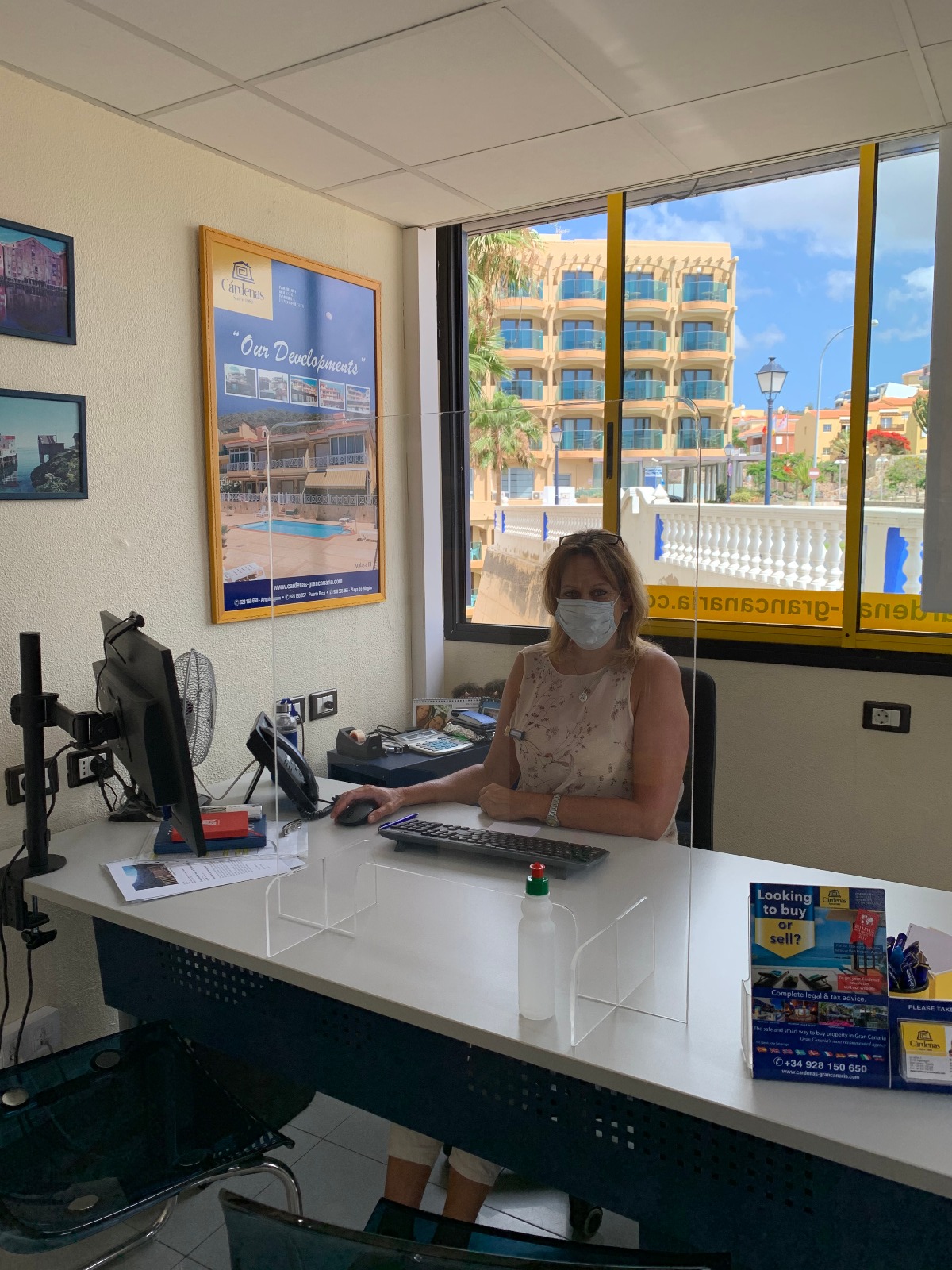 The post-Coronavirus world may seem like an endless series of queues and a constant routine of masks, gloves and hydroalcohol gel but much more is happening behind the scenes. The need to guarantee safety and reduce unecessary procedures means that Gran Canaria businesses are rethinking the way things are done.
The post-Coronavirus world may seem like an endless series of queues and a constant routine of masks, gloves and hydroalcohol gel but much more is happening behind the scenes. The need to guarantee safety and reduce unecessary procedures means that Gran Canaria businesses are rethinking the way things are done.
Less paperwork, more digital support
For example, in real estate the number of physical bits of paper needed for property transactions has dropped fast. Digital signatures mean buyers and sellers don't have to visit as many offices and can even buy or sell from abroad. The property registry and other government departments now offer more online services and legaly valid digital documents.
The virtual visit or 3D tour is now a standard feature of all quality estate agencies in Gran Canaria and allow buyers to view properties from home and visit only the ones they want to see in real life.
With more of the process of buying and selling property moving online and going digital, it is ever more important to choose a quality estate agency to guide you through the process.
People first, thanks to the technology
Ramón Sánchez Bruhn, Marketing & Productivity Manager at leading south Gran Canaria estate agency Cárdenas Real Estate, told us that "the real estate business is all about service and trust and this means people must meet and talk openly. If this isn't possible physically, we have the technology to help us; shared documents, walk through visits in real time, live video calls, all these things allow us to be open with our clients".
As Gran Canaria estate agent Laura Leyshon confirmed, "it's not just about the technology, its about using it to talk and share opinions. I can walk buyers through properties and answer their questions in real time and that really helps me to understand their needs".
Living In Gran Canaria: Getting A Mortgage
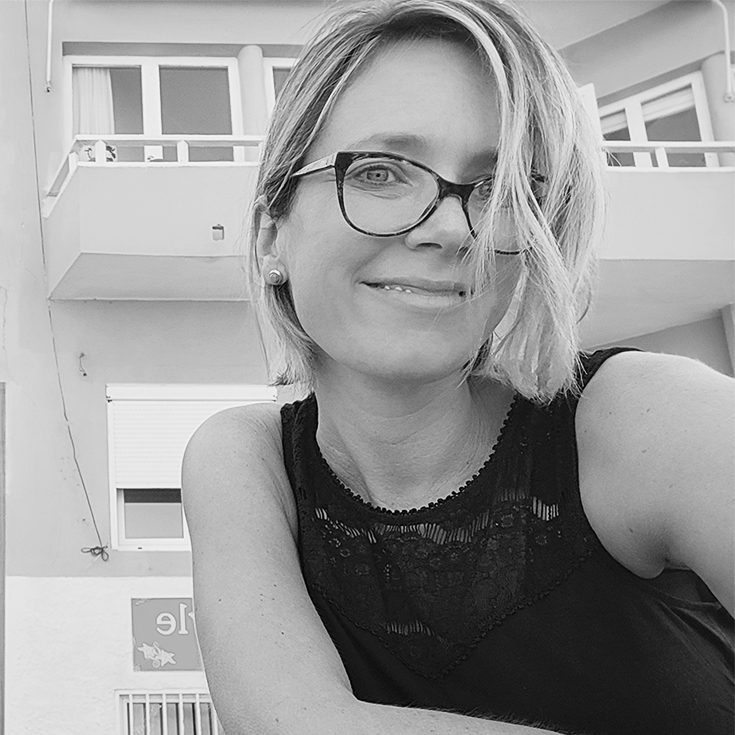 Getting a mortgage as a Gran Canaria resident is not a complex process but you do need to do a fair amount of paperwork and have a decent amount of cash to cover the deposit and fees.
Getting a mortgage as a Gran Canaria resident is not a complex process but you do need to do a fair amount of paperwork and have a decent amount of cash to cover the deposit and fees.
Article by Las Palmas estate agent Laura Leyshon.
Getting a Gran Canaria mortgage
To get a mortgage you must have a 10-20% cash deposit (plus the 10% in cash that it costs to buy a property in Gran Canaria) and prove to the bank that you can make the repayments. In general, they only lend if your liabilities (existing loans, mortgage payments) represent less than 35% of your monthly income.
For example, if you want to take out a mortgage which will be 350 euros a month, you must earn 1000 euros a month and not have any other loan payments. They will check your ability to pay by requesting the following documentation…
- Wage slips from the last 3 months
- Bank statements for the last 6 months
- If you are self-employed, copies of your last 3 years of accounts (with an auditor’s stamp) and copies of you last 12 month’s business bank statements and your last 6 months personal bank statements).
As always, you will need to feed the photocopier with your ID, residencia and the one piece of paper you didn’t bring with you.
Banks in Gran Canaria do NOT take future rental income into account when calculating the amount of money they will lend you to buy a property.
Spanish banks currently offer mortgages of 60-80% of what a property valuation firm says that it is worth (you pay about 300 euros for this valuation as part of the mortgage application process).
Most banks offer variable rate mortgages that last from between 12 and 40 years. Fixed rate mortgages have been at histrically low rates for several years but have risen in 2022.
Gran Canaria mortgage interest rates
Interest rates in Spain vary, but are generally a little lower than in the UK. The rate is set using the EURIBOR interest rate published by the European Money Market Institute.
Your mortgage rate will be expressed as EURIBOR plus a percentage (eg. Euribor más 0.75%) and varies depending on whether the EURIBOR rises or falls. With the rate currently negative, mortgages in Spain are at rock bottom levels.
It is always worth applying to several banks (you only have to gather the paperwork once) as the rate, property valuation, and other conditions vary considerably between banks and you never quite know what headquarters in Madrid (all applications are sent to Madrid for approval) will say.
There is no harm in playing the banks off against each other.
Ask for a copy of one bank’s offer and then take it to a different bank to see if they can improve the offer – they often will. Then take the improved offer back to the original bank – you may get a pleasant surprise.
Gran Canaria mortgage costs
During the mortgage application process, you have to pay for a valuation by a professional valuation firm (200-300 euros) and you will also pay a gestoria (bureaucracy consultant/paperwork company) to handle all the paperwork (around 250 euros); your bank will assign one, you’ll pay for it.
Spanish banks have a habit of attaching other products to their mortgages to boost their profits. For example, you will have to pay for annual life insurance that covers the entire mortgage, and property insurance that covers its replacement value in the case of a fire, etc. Often you get the best interest rates if you agree to their add-ons.
Non-resident mortgages in Gran Canaria
Non-residents need a minimum deposit of 30% plus the 10% in fees and taxes that you need to buy a property. That’s a minimum of 40% of the value of a property befoe you can get a mortgage as a non-resident.
You may also be asked to provide an aval (guarantor). This will be somebody usually based in Spain who agrees to pay in the event of you being unable to.
Save money on transfers by using a currency broker like Currencies Direct if you are from a non-Euro country. They are far better value for money thank banks.
New build mortgages in Gran Canaria
As well as paying slightly more IPT tax (7% rather than 6.5%), buying a new build property has the disadvantage that the constructor (builder) or promotor (promoter) often has a mortgage deal agreed with a particular bank. The rates and conditions are fixed and you have to accept them.
Changing mortgages in Gran Canaria
With rates as low as they are at the moment, there is rarely much benefit to changing your mortgage provider as the process is long and expensive (fees are around €3000). However, if you are locked into a mortgage with high rates, it is worth looking into.
The Clausula Suelo
Spanish banks used to put a floor under the interest rate on their mortgages which basically locked in their profits if interest rates dropped. However, the EU has ruled this floor, known as the clausula suelo, illegal and told the banks to scrap it and TO RETURN ALL THE EXTRA, ILLEGAL INTEREST THEY COLLECTED.
If you have a mortgage in Spain with a clausula suelo, you are entitled to go to your bank and demand that they return all the excess interest you paid over the years.
These sums can be substantial so don’t expect your bank to hand it over without a scrap; They aren’t exactly falling all over each other to obey the courts.
Rather than give you the cash, the bank knocks what they owe you off the outstanding mortgage debt.
For the latest on this story, please read this article.
The best Gran Canaria mortgage banks
Mortgage offers change all the time so we recommend that you shop around extensively and apply at several different types of bank…
The traditional Spanish banks such as BBVA and Santander
The local banks such as Bankia and / or a Spanish caja (equivalent to a building society and just as endangered).
A foreign bank such as Bankinter and Deutsche Bank
An alternative bank such as EVO.
Online banks such as ING Direct.
Specialist mortgage brokers that work with estate agents rather than retail banks.
Help getting a Gran Canaria mortgage
If you speak fluent Spanish and know the local property market, feel free to ignore this advice and use a local mortgage broker or go direct to the banks.
Use a good local estate agent when you buy a Gran Canaria property: They will help you with the process of getting a Gran Canaria mortgage and make sure that you pay a fair price for your property.
Best of all, estate agency services are free for the buyer as the seller pays all their fees.
In Las Palmas and north Gran Canaria, talk to me at Las Palmas Property.
In south Gran Canaria, just go to Cárdenas Real Estate.
Living In Gran Canaria: Renting Out Your Property
If you own a Gran Canaria property and want to rent it out, there are three ways to do it and each has its own advantages.
Short-term tourist rental in Gran Canaria
This is perfectly legal if your property is on land classified as residential (everywhere except the tourist resorts). In resort areas, it is more complicated as you have to have a tourist license, rent it out via a central management company, or apply for a license via an association such as ASCAV. Las Palmas has made noises about tightening restrictions on holiday lets and it is not allowed in many new builds.
You do not need the permission of the Comunidad to rent out a private apartment although a Comunidad can vote to ban all touristic rentals in a building or complex (with a majority vote).
You need to apply for a licence via the Gran Canaria tourist board (El Patronato de Turismo: Headquarters on Calle Mayor de Triana in Las Palmas).
Rates vary depending on location and property specifications. Cleaning costs are often added as a one-off extra charge for tenants. If you need a management company to handle bookings, keys, cleaning, etc, expect to pay at least 20% of the rent.
NOTE: Please speak to a quality estate agent before buying a rental investment property in Gran Canaria’s resorts. The law for resort properties is currently in flux and you need expert advice.
Long-term residential rentals in Gran Canaria
Renting out property in Gran Canaria is fairly easy. You can either do it privately by advertising in the local papers or on websites like Segundamano and FotoCasa, or by advertising it via an estate agent. Agencies traditionally charge the tenant one month’s rent, but some are now asking the property owner to pay this fee, or to split it with their new tenant.
Most owners ask for a month’s rent as a deposit and return it once the tenant has left, minus any costs for repairs (reasonable wear and tear cannot by law be deducted from the deposit).
One advantage of renting via an agent is that they handle the contract, but you can download example contracts.
If you are a non-resident, some agencies will manage your property (they arrange for plumbers if there’s a problem, etc) for a monthly fee of around €50.
Renting out Gran Canaria property the middle way
Many owners take a middle road between touristic rentals and residential lets by renting their property to people who spend several months a year living in Gran Canaria. They are often retired Brits and Scandinavians escaping the winter back home (known as snowbirds) but digital nomads are also flocking to Gran Canaria.
The benefits of renting to snowbirds are that you can charge more per month than for a residential let and don’t have to handle frequent keys and cleaning.
To advertise your property to snowbirds, post it on websites like AirBnB and specify a long minimum stay, or post on residential rental portals.
Renting and taxes
Non-resident property owners pay 24% income tax on rental income of all types while residents have to pay income tax. Residents pay income tax.
Most non-residents use a local Gestoria to handle their tax and paperwork.
Living In Gran Canaria: Property Tax Guide
 Buying a property in Gran Canaria costs about 10% of the price you pay once you factor in taxes and fees. Selling a property involves some costs but these only add up if you profit from the sale. The annual tax burden of owning a property in Gran Canaria is low.
Buying a property in Gran Canaria costs about 10% of the price you pay once you factor in taxes and fees. Selling a property involves some costs but these only add up if you profit from the sale. The annual tax burden of owning a property in Gran Canaria is low.
Article by Gran Canaria estate agent Laura Leyshon from Las Palmas property.
Here is a summary of all the annual property taxes you have to pay in Gran Canaria.
IBI: An annual property tax set by the local Ayuntamiento that is between 0.5% and 1% of the official value of your property (much lower than the market value). The IBI rate in Las Palmas is currently 0.73% while other municipalities charge slightly different rates..
Other ongoing costs...
IBI is the only monthly tax cost that you have to pay in Gran Canaria (San Bartolomé de Tirajana charges an annual rubbish collection tax). However, if you live in a building or a complex you have to pay a monthly communidad fee which is your share of costs like communal electricity, lift and pool maintenance and insurance.
The amount varies depending on the building and the facilities and services it offers.
Non-resident property owners must pay income tax on any rental income, plus IGIC (VAT) if they rent their property on a short -term basis. Even if a non-resident property owner doesn’t rent out their property, they still have to pay a small annual Sunshine tax.
Some municipios, such as Mogán charge an annual rubbish collection fee.
Gran Canaria property taxes at purchase
ITP or re-sale purchase tax
Buyers of re-sale property (as opposed to a new build) are required to pay the Impuesto de Transferencia de Propiedad which is 6.5% of the price paid for the property.
New Properties purchase tax
This is currently 7% if the house is finished or is being built at the time of the purchase. It is paid by the buyer.
A property buyer only ever has to pay one of the above two taxes.
Other Gran Canaria property purchase fees
While not strictly taxes you also have to pay Notary fees (around 300 euros for most properties, more if you buy with a mortgage) and Property Registry fees (around 300 euros). Most buyers use a Gestoria to handle the paperwork associated with a purchase (they charge around 250 euros).
Along with the 10% taxes and fees, you’ll need a minimum deposit of 10-20% if you get a mortgage (30% for non-residents) and 300 euros to pay for a valuation of the property you want to buy. Spanish banks also insist that you take out life insurance and property insurance at the same time as the mortgage. Legally your mortgage provider cannot force you to take out their insurance. However, it makes the whole process smoother if you do. You can always change to a better deal after a year.
Gran Canaria property taxes at sale
Plusvalía municipal
Paid by the seller to the Ayuntamiento where the property is located, this is also called the impuesto sobre el incremento de valor de los terrenos de naturaleza urbana (IIVTNU).
You pay plusvalia on the increase in value of the land that a property occupies during the period that you own it (capped at 20 years) and the amount varies depending on the period of ownership and the rates set by the Ayuntamiento.
Incremento patrimonial
Capital gains tax paid to the Spanish Treasury; Based on the difference between the sale price and the price paid by seller when he/she originally purchased the property (you can offset costs of improvements so keep your new kitchen and bathroom facturas).
As of 2016, the capital gains tax rate in Gran Canaria is 19% for the first 6.000 Euros, 21% from 6.000 to 50.000 Euros and 23% from that last amount upwards.
However, one advantage of the fall in Gran Canaria property prices over the last 10 years is that few sellers have to pay capital gains tax.
Tax exemption
Avoid paying capital gains tax by reinvesting the money from the sale of a main residence property into another main residence property within two years. EU nationals, even non-residents, can also avoid this tax if they buy a new main residence property anywhere in the EU within two years.
To claim the exemption you need to be able to prove that a property has been your main residence. A good reason to get a ‘certificado de empadronamiento’ certificate from your Ayuntamiento as soon as you buy your house.
Mortgage cancellation fees
If you cancel a mortgage when you sell a property, expect to pay 1% or more of the outstanding balance for the privilege, plus up to 1000 euros to register the cancellation at the Notary and Property Registry. You can sometimes pass the mortgage on to the buyer if the terms are acceptable.
Tufia Village Saved From Demolition
The east coast Gran Canaria village of Tufia, long threatened with demolition, has been saved by tweaks to the law.
Tip Of The Day: Buy Gran Canaria Property The Right Way
If you're thinking of buying a Gran Canaria property and don't speak fluent Spanish, get professional help.
Gran Canaria Property: Buying In The South? Just Go To Cárdenas Real Estate
Buying a property in Gran Canaria is a big decision but it doesn't have to be a big risk. Here's everything you need to know to do it right.
Gran Canaria Property: Essential Info About Buying In Las Palmas
If you've visited Gran Canaria's capital city and decided that it's the place to buy a holiday property or even to live, here's some really useful info that you need to know about the Las Palmas property market.
Storm In A Teacup: Gran Canaria Property Confusion And What It Means To Private Owners
A recent draft law released by the San Bartolomé de Tirajana town hall (Ayuntamiento) has generated widespread confusion and worry in Gran Canaria. However, there is little to be concerned about as the situation is being hyped up for political reasons. Here's a concise summary of what's going on and what it means.
We have updated this article to take into account the important effects of the 1995 Ordenación del Turismo de Canarias law.
Gran Canaria Property: Popular Resort Property Areas
South Gran Canaria's almost permanent sunshine and warm weather has to be one of the best value places to own a holiday home in Europe.
Gran Canaria Info recommends:
- Default
- Title
- Date
- Random

